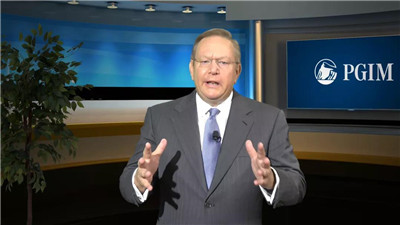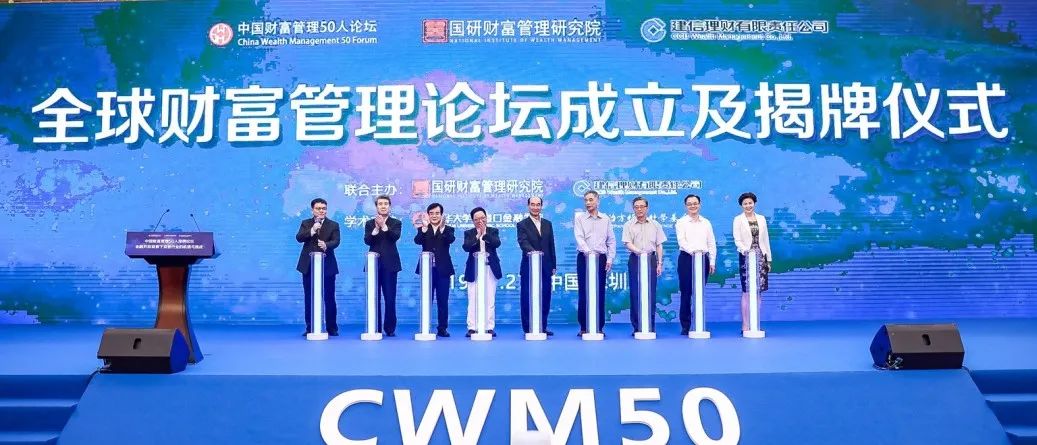保德信投资管理CEO:全球资管新四化

保德信全球投资管理总裁兼首席执行官David A. Hunt先生近日出席全球财富管理论坛上海苏河湾峰会时,就资产管理行业的长期宏观趋势变化与短期微观投资焦点发表演讲。
作为位列全球前十的多元化资产管理公司负责人,Hunt先生首先介绍了保德信在固定收益、房地产、另类资产及股票方面独到的主动管理能力,以及自2004年开始至今,分别与光大证券和复星集团在华展业的成功经验。关于资产管理的宏观趋势,Hunt先生通过回溯过去十五年全球金融市场变革,指出当前及今后一个时期,以机构为主的专业化主动资产管理正逐步取代个人散户投资。在这个趋势性变化中,由于资源的更加集中,投资诉求逐渐一致,为了更高效且长远地获取收益,行业内部应在创新科技以及养老保障方面加大投资。此外,Hunt先生还谈到资产管理行业应该担当起全球金融复苏的责任,并提出可以在证券业全球化、投资产品本土化、散户长期化以及退休保障稳健化四个方面加大资源配置力度,认真履行对客户受托责任的同时,团结行业内各机构共同改善世界金融格局。
以下为演讲全文。

让我首先简单介绍一下保德信投资管理公司。保德信投资管理公司是全球最大的保险公司之一,保德信金融集团的投资管理业务板块。保德信投资管理公司跻身全球十大资产管理公司之列,资产管理规模超过1.5万亿美元。我们为所有主要资产类别提供多元化的主动管理策略,拥有领先的公共固定收益业务。保德信投资管理公司是全球第三大房地产投资公司,拥有领先的私募另类投资能力。保德信投资管理公司是一家大型股票投资公司,专注于全球范围内的科技公司和新成长型公司。保德信投资管理公司和保德信为世界各地的各类客户提供服务,包括中国的客户。保德信投资管理公司很早就意识到中国金融服务市场的吸引力,我们在中国开展业务的历史可以追溯到2004年。如今,保德信投资管理公司和保德信在中国的业务规模越来越大,我们有两项主营业务,一项是与光大证券合资的资产管理业务,另一项是与复星集团合资的保险业务,归于复星保德信人寿保险股份有限公司名下。
今天,我与各位就以下三个方面进行分享。首先,我想谈谈资产管理在全球资本流动中起到的更广泛的调节作用,以及过去十年是如何演变的。其次,我想谈一谈资本配置,以及在我们审视世界各地有吸引力的行业时,如何看待资本配置继续发生变化。最后,我想和大家分享在未来一年,行业内最为关注的事项的思考。
让我们从第一个话题开始。十五年前,你可能会看到大量跨境贷款通过银行系统流出。你会看到私营公司进行了非常大规模的外国直接投资。当然,你也会看到资金通过证券市场流动。然而,自全球金融危机以来,情况发生了巨大变化,银行贷款大幅削减,外国直接投资大幅下降。如今,储蓄和投资主要通过证券市场在全球经济中流动。这就是资产管理公司崛起的原因。在如今的资本配置中,领先的资产管理公司发挥着前所未有的重要作用,而且在很大程度上扮演了历史上银行曾经的角色。鉴于资产管理行业在资产配置方面的作用已经得到了强化,让我们回顾一下资产管理行业在资本配置方面的过往表现。我认为总的来说有长有短,喜忧参半。有利的一面是,资产管理行业大幅扩大了可用于满足全球需求的投资工具范围和类型。我要特别提一下公共债务和股票业务的大幅扩张,这些业务已经全面地从发达市场进军至发展中经济体且长势良好。此外,私募市场本身现已自成一统,涵盖房地产、私人信贷、私募股权和股票二级市场。所有这些都为私营企业提供前所未有的融资渠道。我认为,这是资产管理行业重要而激动人心的进展。
其次,我认为随着资产管理行业的崛起,出现的另一个长足进展是对各种新技术进行投资。我们的风投业务,过去规模相对较小,主要集中在加州,但现在长成了参天大树,稳健运行,全球布局。现在,我们针对企业早期、中期、晚期进行投资,有各种各样的私募机构,它们正在以十年前不曾有过的方式投资科技公司和其他新型生物医药公司。我认为,如此广泛的投资覆盖范围正在以一种真正令人兴奋的新方式为创新提供资金。不过,如果我们以更具批判性的眼光来看待一些不尽如人意的方面。我会先谈零售市场。随着时间的推移,特别是在过去几年,散户投资者的关注点已经从投资性资产类别转向了广泛的投机性资产类别。梗股和加密货币都体现了这一点。在一些投机性更强的体育和博彩行业,我们已经看到了这一点。而且,至少对我们这些认真履行受托责任的人来说,我们担心散户投资者对某些投机性投资的热情不利于投资的长期健康。我们担心的第二个方面是,老龄化程度越来越高的社会,对养老金和退休金的需求也越来越大。我们已经合理地制定了一些必要的积累策略,但还没有真正解决社会的长期退休需求,特别是对退休收入产品的需求。我认为,这两项挑战是整个行业应该努力应对的,也是行业未来几年应该努力提升的方向。
最后,让我谈谈对未来的一些看法。资产管理行业对全球金融复苏负有重要责任。我认为,资产管理行业在四个方面需要尤其努力来进行自我提升:
第一,是继续支持证券业的全球化。我已经谈到银行业在资本配置调节中发挥的作用越来越小,外国直接投资发挥的作用也越来越小,我认为这种趋势还会继续下去。在实际调节全球资本流动方面,整个证券业的主导地位将更加明显。资产管理行业的领军企业需要认真对待这一责任,我们需要确保拥有全球化的视野,在世界各地都有合适的一线实地研究团队,有风险管理的全球措施,足以应对全球投资组合带来的复杂性。
第二,是继续支持世界各地本土资本市场的发展。我们确实认为,尽管全球性资本市场很重要,但只有在本土资本市场深度发展,品类丰富,并且独立价格发现普遍通行之后,全球性资本市场才能取得成功。对我们而言,中国股票市场、债券市场和房地产市场的发展绝对是重中之重。在发展全球能力的同时,我们也将尽一切努力来支持这些本土市场的发展。
第三,是如何更好地帮助散户投资者成为长期投资者。我们所有人都应以面对机构投资者所持有的受托心态来对待散户投资者。要确保散户投资者也能享受到机构投资者所能享受到的产品安全及保障。对于资产管理行业而言,投资者教育将绝对是重中之重。
最后,是退休保障方面的挑战。世界各国社会都在步入老龄化。欧洲如此,美国如此,中国亦然。资产管理行业需要在为临退休和已退休人员提供各类解决方案方面大力创新。
我认为,要实现上述目标,我们需要提供出色的服务,确保人们拥有长寿、健康、财务安全的生活。以上四点就是今后十年我笃信的优先事项。保德信投资管理公司极其认真地对待我们作为世界各地资本流动管理者的职责。我们致力于继续改善业绩表现,并与世界各地的所有合作伙伴和经济体保持合作,帮助他们改善业绩表现。

Speech at GAMF 2022
Shanghai Summit
David A. Hunt
Let me start with just a brief overview of PGIM. We're the investment management business of Prudential Financial, which is one of the largest global insurers. PGIM is a top ten global asset manager, with over $1.5 trillion in assets under management. We offer a wide variety of active management strategies across all the major asset classes. We have a leading public fixed income business. We're the third largest real estate investor around the world. We have one of the leading private alternatives capabilities. And we're a major equity investor, particularly in technology and new growth companies around the world. PGIM and Prudential serve a broad range of clients around the world, including in China. PGIM recognized the attractiveness of the Chinese financial services market at an early stage, and our presence onshore goes back to 2004. Today, PGIM and Prudential have a significant and growing presence in China, and we have two main operating businesses, one in asset management, which is a joint venture with Everbright Securities, and the second, an insurance joint venture with the Fosun Group, which goes under the brand Pramerica Fosun Life Insurance Company.
Today, I want to highlight three topics. First, I want to talk about the role of asset management in the broader intermediation of global capital flows and how that's changed over the last decade. Secondly, I want to talk about the allocation of capital, and how we see that continuing to change as we view attractive sectors around the world. And then last, I wanted to offer you some thoughts on the priorities we should all have as an industry, going forward over the next year.
Let's start with the first topic. It's one of the biggest changes that we've seen in the structure of global capital markets. Fifteen years ago, you would have seen major flows of cross-border lending coming through the banking system. You would have seen very large flows of foreign direct investments made by private companies. And, of course, you would have seen money coming through the securities markets. However, since the Global Financial Crisis, that has dramatically changed. Bank lending has plummeted. Foreign direct investment has gone way down. And the major way that savings and investments are being funneled around the global economy today is through the securities markets. And that's why we have the rise of asset managers, and the leading asset managers never been so important now in the allocation of capital and have largely taken on a role that historically was played by the banks. Let's have a review then of how well the asset management industry has done allocating capital, given this enhanced role. I think there's a couple of things that have gone particularly well, and maybe a couple of things that have not. In terms of the positive side of the ledger, I would say that the asset management industry has dramatically expanded the range and type of investing vehicles that are available in order to fund the world's needs. I would point in particular to the great expansion of both the public debt and equity businesses, which have absolutely moved from the developed markets directly around the world to encompass a robust offering for the developing economies. I would also say that the private markets have now become very much an investing class of their own. This encompasses real estate, private credit, private equity, secondaries. And all of these have provided funding to private companies in ways that they would not have been able to access before. This is an important, I think, an exciting development in the industry.
The second thing that I think has gone very well with the rise of the asset management industry has been the wide range of new technologies that have been invested. We have now a venture capital industry, which used to be relatively small and largely based in California, to one that now is large, robust and global. And we now have early-stage, mid-stage, late-stage and a wide range of private structures that is investing in technology companies and other new biomedical firms in ways that we never had ten years ago. I think that this wide range is funding innovation in a really exciting new way. But if we look more critically then at some of the things, perhaps, that have not gone well, I would point first to the retail market. Over time, retail investors, particularly in the last couple of years, have moved beyond what I would say are investable asset classes to a wide range of more speculative classes. And we've seen that in the meme stocks, we've seen that in crypto currency. We've seen that in some of the more speculative moves into sports and into gaming. And, at least for those of us who take our fiduciary duty seriously, we worry that the retail investor enthusiasm for some of this is not good for the long-term health of investing. And the second area that we worry about is the pension and retirement needs of the ever older societies that we operate it. We've done a reasonable job at some of the accumulation strategies that are necessary, but we haven't yet really grappled with the long-term retirement needs of society, and in particular, the needs for retirement income products. I think both of these challenges are things that the industry overall should grapple with and seek to improve itself over the coming years.
Let me conclude my remarks, with some thoughts about the future. The asset management industry has an important responsibility to the global financial recovery. And I think, in particular, there are four things that we as an industry need to strive to improve ourselves on:
The first is to continue to support this globalization of securities. I've talked about how the banking industry has played less and less of a role in capital intermediation. I've talked a bit about how FDI has, I expect those trends to continue. The securities industry overall will be ever more dominant in actually intermediating global capital flows. The asset management leaders need to take that responsibility seriously, and we need to ensure that we're globalizing our perspectives, that we have the proper research groups on the ground around the world, and that we have a global approach to risk management, that is able to manage the complexity that comes with a global portfolio.
The second priority is the continued support for the development of local capital markets around the world. We do believe that while the global capital markets are important, they can only succeed to the point that local capital markets become deep and rich, and with a lot of independent price discovery. For us, the development in China, of the equity markets, of the bond markets, of the real estate markets, is absolutely fundamental, and we'll do everything we can to support those local developments, even as we develop our global capabilities.
Third, we do need to get better at helping retail investors become long-term investors. All of us have an obligation to ensure that the kind of fiduciary mindset that we have with institutions are brought to bear for retail investors as well. They need to have the kind of security and protection in the kinds of products that they have that institutions do as well. Investor education is going to be absolutely at the forefront of what we need to do as an industry.
Last, I mentioned the retirement challenge. Right around the world societies are aging. It's true in Europe, it's true in the U.S., and it is certainly true in China. We, as an industry, need to be much more innovative in terms of the kinds of solutions that we're able to offer for people who are about to retire, and in retirement.
I think in doing so we'll do a great service to ensuring that people have a long, healthy, and financially secure life. Those are the four priorities that I really believe in over the next decade. We at PGIM take our role as stewards of these kinds of capital flows around the world extremely seriously. We're dedicated to continuing to improve our performance and to working with all of our partners and economies around the world to improve theirs.
全球财富管理论坛

全球财富管理论坛是在金融开放背景下,为顺应全球资产管理行业发展与中国资产管理行业转型需求,由清华大学经济管理学院、孙冶方经济科学基金会、中国财富管理50人论坛联合发起成立的一个国际性交流平台组织,论坛旨在构建一个汇聚全球资产拥有者和管理者、监管部门和市场代表的长期对话沟通平台,为国内外资产管理机构搭建交流与合作的桥梁。

